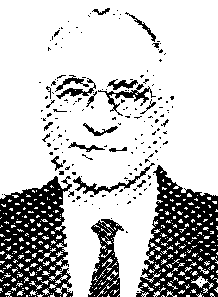The Public Debate on Genetic Engineering in the GDR
Some of the findings, supplemented by interviews with key actors conducted after the fall of the Iron Curtain, are presented in the following publications:
The thesis contains an extensive list of pertinent material and gives a more in-depth analysis of the arguments used by the various sides. A study (in German) that investigates the public debate on genetic engineering in the GDR (East Germany) from the late 1960s to the late 1980s. The genetic-engineering debate is probably the best example for the limited but still real scope for public discourse in post-Stalinist Soviet political systems. Especially novellists voiced concerns about the manipulation of the genetic code while the Communist government hailed it as a technology of the future. The debate is also interesting with regard to the conflicting application of Marxist theory to the assessment of the risks and benefits ascribed to genetic engineering.
A study (in German) that investigates the public debate on genetic engineering in the GDR (East Germany) from the late 1960s to the late 1980s. The genetic-engineering debate is probably the best example for the limited but still real scope for public discourse in post-Stalinist Soviet political systems. Especially novellists voiced concerns about the manipulation of the genetic code while the Communist government hailed it as a technology of the future. The debate is also interesting with regard to the conflicting application of Marxist theory to the assessment of the risks and benefits ascribed to genetic engineering.
The study (officially titled: Klaus von Lampe, Die öffentliche Diskussion über die Gentechnik in der DDR, Diplomarbeit, Fachbereich Politische Wissenschaft der Freien Universität Berlin, October 1989, 109 pp.), primarily based on research conducted at the IGW Erlangen in the summer of 1989, was submitted as a thesis to obtain the Diploma degree from the department of political science (Otto-Suhr-Institute) at Free University Berlin in October of 1989. Coincidently, one day after the submission of the thesis, Erich Honecker resigned as leader of the East German Communist Party, marking the downfall of the post-Stalinist regime in the GDR and leading to German reunification in the following year.
Klaus von Lampe, Die Gentechnik-Diskussion in der DDR - Ein Fallbeispiel zum Spielraum ungelenkter Öffentlichkeit in der Vor-Wende-Zeit, in: deutsche studien Nr. 121, April 1994, S. 75-94 (PDF)
Klaus von Lampe, Einige Anmerkungen zur politischen Stellung der Wissenschaftler im System der DDR - Interessenartikulation und Interessendurchsetzung am Beispiel der Gentechnik, in: hochschule ost, Mai/Juni 1995, S. 86-93
If you don't read German I will be happy to answer your e-mailed questions on the topic.